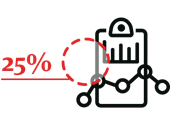Our previous ‘work from anywhere’ articles discussed some of the important issues relating to this worldwide trend.
We will now examine the hybrid workplace, where employees combine some level of ‘work from anywhere’ with some time attending their worksite.
One of the big four accounting firms believes that whether “by design or default, most companies are heading toward a hybrid workplace where a large number of office employees rotate in and out of offices configured for shared spaces.”1
More than 75% of respondents to a recent survey across North America, Europe, APAC, and Latin America agree; they believe that “hybrid/flexible work will be a standard practice within their organizations in the coming three years.” 2

“In theory, hybrid offers the best deal for both employer and employee”3 as it embraces the “flexibility that most employees (and some employers) crave.”1
However, as ‘work from anywhere’ is in such demand, why would employees want to move to hybrid work and return to the office part of the time?
Microsoft contends that “a successful shift to hybrid work will depend on embracing the ‘hybrid paradox’, in which people want the flexibility to work from anywhere, but simultaneously crave more in-person connection.”4
Microsoft’s survey of more than 31,000 employees across 31 markets found that “employees want the best of both worlds”4:
 |
- 73% - Want flexible remote work options to stay, and
|
 |
- 67% - Want more in-person work or collaboration.
|
| |
|
These competing employee priorities “demonstrate the Hybrid Paradox in action: we’ve missed one another and what we can accomplish in person. At the same time, we want to hold on to the perceived wellbeing benefits of working from home.”4
For organisations, the acceptance of hybrid work is high, with “66% of business decision makers…considering redesigning physical spaces to better accommodate hybrid work environments.”5

94% of business leaders in a recent survey across eight countries agree that allowing hybrid work will bring numerous benefits:6
 |
- 34% Attracting and retaining talent
|
 |
- 33% Better digital experience for employees and customers
|
 |
|
 |
- 32% Environmental benefits
|
 |
- 32% Increased productivity
|
 |
- 31% Safety during/post pandemic
|
 |
|
 |
- 29% Increased creativity and collaboration
|
 |
- 25% Business/operational resilience
|
| |
|
So, what proportions of ‘work from anywhere’ and office work are ideal? The answer is complex and will vary by organisation and by employee, based on the needs of both parties.
Further complexity stems from the fact that three main hybrid work models have emerged:7
 |
- Office frequency and days are both mandated.
|
 |
- Fixed office frequency mandated, but attendance days flexible.
|
 |
- Workers choose where they work and when.
|
| |
|
No matter which hybrid model is chosen, “the hybrid pattern will be unfamiliar for employees and employers alike.”8
“Planning ahead is key here”, and one suggested way “to move seamlessly between home and work offices” is to divide work tasks into:8
 |
- Asynchronous tasks which can be completed from start to finish without input from others – these should be done at home.
|
 |
- Synchronous tasks which require collaboration, conversation, brainstorming or group activity with many interdependent parts – these should be done in the office.
|
| |
|
Finally, organisations will need to adapt workplace policies to accommodate hybrid work, and ideally these changes will be based on “a healthy employee-employer relationship built on mutual respect and fueled by clear conversation.”9
Despite all the benefits of the hybrid model, it is “a complicated way to organize the work week and (it) is likely to transform a company’s culture, employee engagement, the way the work gets done and how office space is used.”1
We will explore some of these issues in forthcoming articles.
Norton Rose Fulbright assists organisations to efficiently and effectively address the legal aspects of the new global work environment, including employees working from home and anywhere. Please reach out if we can assist your organisation in this respect.











